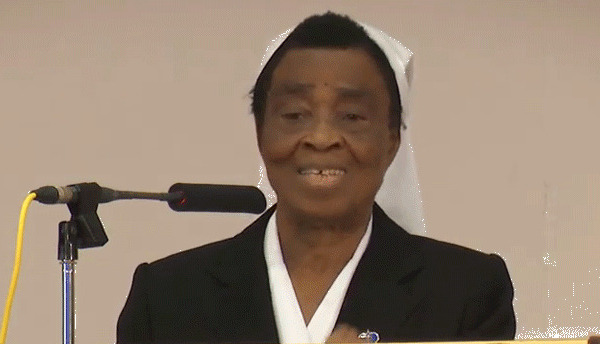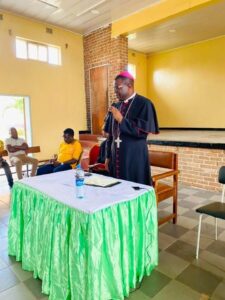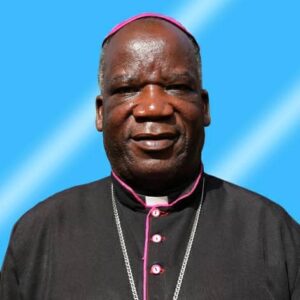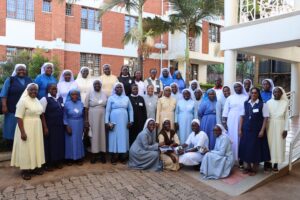ACWECA PLENARY: Catholic Nun Calls for Self-Emptying and Synodality at ACWECA’s 19th Plenary

Sr. Okure Teresa
Sr. Henriette Anne, FSSA
Sr. Teresa Okure addressing the participants on the second day of the 19th Plenary Assembly of the Association of Consecrated Women in Eastern and Central Africa (ACWECA) in Lilongwe, Malawi, reminded the participants that Evangelical Counsels and Self-emptying are intertwined and that the vows of Chastity, poverty, and obedience which form the evangelical counsels are not merely an act of renunciation but are intentional choices to live out the Gospel in a way that brings life to others.
In her presentation on Tuesday, August 20, the member of the Society of the Holy Child Jesus (SHCJ) explained that what is required in religious life is self-emptying, creating room for oneself and others for effective participation in the ministry or reconciliation.
“What is required of the religious for effective participation in this ministry or reconciliation is a self-emptying, deliberate action taken to create room in oneself for the other; a kind of hospitality of the heart, of life which creates room for the other to exist and to be, but this time not in a house but in oneself”.
She adds reflecting the Gospel of St. John “To empty oneself is to create room in oneself for the others, to create one’s own values, to create room for the community and attitude among others for the others to exist on equal footing and “have life ever increasingly in its fullness” (John 10:10).
Drawing inspiration from the life of Jesus and the Apostle Paul, Sr. Okure highlighted how these central figures of Christianity exemplified self-emptying. Jesus, through the divine, chose to take the form of a servant, humbling Himself even to the point of death on the cross. On the other hand, she said that St. Paul embraced a self-emptying by relinquishing his privileged status as a Jew and a Pharisee, and in his epistles, he recounts how he considered all his former gains as a loss for the sake of knowing Christ and participating in his mission, asking the participants to think about their self-emptying and what would be the content their self-emptying.
Sr. Okure further advised the formators on the need to be careful about the food served to the formees, “The formator needs to be careful about the food, nourishment, menu served to the formee. This applies to the content of the formation program which should be devised by the congregation, not by the formator”.
Borrowing the ideas of Ubuntu, Solidarity, and Synodality the Scripture enthusiast called upon Religious women to remember that in the context of religious life in Africa, the principles of Ubuntu, solidarity, and Synodality are crucial.
Ubuntu belief stresses “I am because we are, and because I am, we are.” This resonates with the communal spirit of early Christianity and challenges religious communities to live in solidarity, supporting one another and working together on a mission. Synodality calls for journeying together as one body in Christ and invites religious communities to embrace a spirit of communion and participation, ensuring that every member has a voice and a role in the mission.
“Holistic formation in view of living the consecrated life needs to keep pace with the church, Keep pace with the Master. The church is now in a synodal mode and is marching towards becoming a synodal church. This also implies becoming a synodal congregation a synodal ACWECA. Communion, participation, and mission”.


